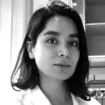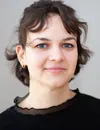SOFT
Project: Stimulating self-optimization of flow networks for transport
Collaborating departments: Department of Physics (TUM); Hydrodynamics Laboratory (École Polytechnique de Paris) (l’X)
Flow transport in networks is abundant in biology and engineering, from the vasculature of animals to the random porous media making up fuel cells. It has long been thought that biological networks were optimised to minimise the energetic cost associated to viscous flow dissipation. Only recently the idea was coined that these networks are optimized for mass exchange, or perfusion. We then need not only networks that cover space efficiently, but also whose morphology leads to an even flow of chemicals (catalysts, nutrients, oxygen...) throughout all its tubes, so that all parts of the network receive the same amount of chemical.
In life network morphology continuously adapt in response to stimuli leading to self-organised structures optimal for perfusion. In contrast, fluid velocities in engineered networks of random media differ from tube to tube, and follow an overall exponential distribution. Transport through these networks is inefficient, being limited to a few fast lanes.
The aim of our project is to combine theory, simulations, microfluidic experiments and cell culture experiments to generate flow networks whose morphology self-organises in response to signals, leading to network morphologies optimal for perfusion. The project here centers on two key applications of engineered networks 1) microfluidic networks for cooling for batteries and as chemical reactors for fuel cells and 2) in vitro vasculature to perfuse tissues and implants. Thereby we contribute to both a cleaner, more affordable energy and the next generation of medical treatment.
Conference papers
- Bouvard, J., Leu, C., Bektas, O., Rädler, J., Alim, K., & Amselem, G. (2023, April 3). Adaptive networks: erosion of microfluidic channels [Conference session]. Journées plénières du GDR MicroNanoFluidique, Lyon, France. https://hal.science/hal-04569951J
- Bouvard, J., Leu, C., Bektas, O., Rädler, J., Alim, K., & Amselem, G. (2024, March 5). Adaptive networks: erosion of microfluidic channels [Conference session]. APS March Meeting 2024, Minneapolis, USA & Virtual. https://meetings.aps.org/Meeting/MAR24/Session/G33.7
Team

Coordinating Postdoc
Dr. rer. nat. Fatemeh Mirzapour-Shafiyi
Biological Physics and Morphogenesis
Physics Department | TUM


Doctoral Candidate
Swarnavo Basu
Biological Physics and Morphogenesis
Physics Department | TUM

Principal Investigator
Prof. Dr. Karen Alim
Biological Physics and Morphogenesis Department of Physics | TUM

Principal Investigator
Assistant Professor Gabriel Amselem
Laboratoire d'Hydrodynamique (LadHyX) École Polytechnique de Paris | I'X